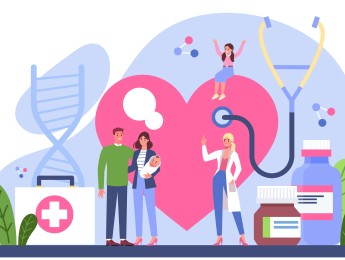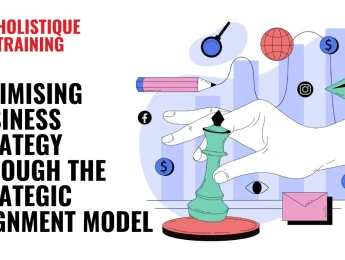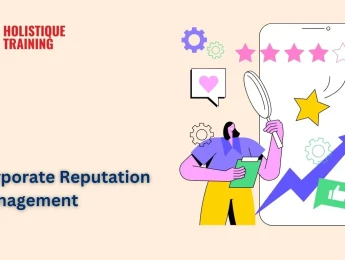Introduction
As society becomes increasingly aware of mental health, psychotherapy plays a vital role in supporting individual well-being. However, misconceptions about therapy often prevent people from accessing its benefits. This guide examines and corrects some of the most common myths about psychotherapy, highlighting its value and potential impact for those seeking personal growth, emotional resilience, and mental wellness.
1. Who Needs Therapy?
Misconception: “Only People with Serious Mental Illness Need Therapy”
Therapy is often misunderstood as a resource exclusively for individuals with severe mental health issues. This belief can limit the perceived scope of therapy and reinforce stigma around mental health support.
Reality: Therapy is for Anyone Seeking Personal Growth or Support.
Therapy is a valuable resource for anyone facing life challenges, personal growth goals, or relationship improvements. Studies indicate that over 30% of Americans experience symptoms of anxiety, depression, or stress that therapy could alleviate, even if they don’t meet clinical thresholds for mental illness. Just as individuals go to a gym to strengthen their physical health, therapy can serve as a "mental gym," where people can build emotional resilience and foster personal growth. Removing the stigma surrounding therapy and recognizing it as a tool for self-care can help make mental health support more accessible to those who would benefit.
Insight: The stigma surrounding therapy often discourages individuals from seeking help. By addressing this misconception, we can make therapy more accessible to those who might otherwise feel excluded.
2. Friends vs. Therapists
Misconception: “Talking to Friends is the Same as Talking to a Therapist”
Some may perceive therapy as unnecessary, believing that conversations with friends or family suffice. This view, however, overlooks the specialized skills and training that therapists bring to the table.
Reality: Therapists Provide Professional Support and Structured Guidance.
Therapy provides a structured and objective environment that friends may not be able to offer due to their emotional involvement and lack of formal training. Therapists follow ethical guidelines and maintain confidentiality, creating a safe space for exploring complex emotions. In contrast to informal conversations, therapists use evidence-based practices designed to promote long-term change and self-awareness. Research from the Journal of Counseling Psychology reveals that therapy sessions often provide more profound insights and guidance, as therapists employ proven techniques to guide clients through their emotional and psychological challenges.
Example: Clients frequently express that therapy offers a safe, judgment-free space to articulate feelings they might hesitate to share with friends, underscoring the unique value of a therapist's neutral perspective.
3. Therapy and Time
Misconception: “Therapy Takes Forever to Work”
Many believe that therapy is a slow process with limited results, which can deter people from committing to it. This misconception likely stems from media portrayals of therapy, where long-term treatment is often the sole focus.
Reality: Therapy Can Produce Results Quickly.
Therapy can produce noticeable benefits even within a short period, depending on the type of approach used and the client's goals. Modalities such as Cognitive Behavioral Therapy (CBT) often show results within 8 to 12 sessions. In fact, the American Psychological Association reports that 50% of clients demonstrate improvement within 8 sessions, and 75% notice progress after six months. Some therapies, like solution-focused brief therapy, are designed for rapid improvement. Therapy timelines are adaptable to each person’s needs, meaning individuals often experience meaningful shifts sooner than expected.
Example: A client dealing with work-related stress experienced significant improvement within just a few sessions through structured goal-setting and coping strategies, illustrating how therapy timelines can be tailored to individual needs.
4. Therapists' Role
Misconception: “Therapists Just Listen; They Don’t Give Real Advice”
Some might envision therapy as a passive process where therapists merely listen without providing concrete solutions. This misunderstanding can lead to disappointment or unmet expectations.
Reality: Therapists Actively Guide Clients Toward Solutions and Self-Discovery.
Therapy is a dynamic and collaborative process where therapists play an active role in guiding clients toward self-discovery and personal growth. Therapists use various techniques, including cognitive restructuring, behavioral exercises, and mindfulness practices, to empower clients in building healthy coping mechanisms. Evidence-based methods, such as Dialectical Behavioral Therapy (DBT) and Eye Movement Desensitization and Reprocessing (EMDR), are designed not only for conversation but also for addressing trauma and deep-seated emotional issues. Through these tools, therapists offer more than just a listening ear—they provide structured strategies for transformation and healing.
Example: A therapist working with a client on managing anxiety incorporated practical exercises such as breathing techniques and thought-challenging practices, demonstrating that therapists provide actionable guidance.
5. Therapy Beyond Crisis
Misconception: “You Have to Be in Crisis to Start Therapy”
Many people assume that therapy is only for those facing severe emotional crises, which can prevent individuals from seeking therapy proactively.
Reality: Therapy is a Proactive Step Toward Mental Wellness.
Therapy is an effective tool for preventive care, offering individuals a proactive way to develop coping skills and emotional resilience before reaching a crisis point. Research shows that early intervention through therapy often prevents the escalation of mental health issues, reducing the need for more intensive treatment later. Individuals experiencing life transitions, such as career changes, relationship shifts, or parenting challenges, frequently benefit from therapy as a space for guidance and support, even in the absence of acute distress. Therapy, in this way, can be an empowering resource for managing life’s demands before they lead to crisis.
Example: Individuals experiencing career transitions, relationship changes, or parenting challenges often find therapy beneficial, even without acute distress, using it as a resource for guidance and support.
6. Therapy’s Impact on Past Trauma
Misconception: “Therapy is Just Talking; It Can’t Change Past Hurts”
There is a belief that therapy cannot effectively address past traumas, as some think that discussing past events may not lead to meaningful change.
Reality: Therapy Provides a Path to Healing and Resilience.
Therapy offers a structured and safe environment for processing and integrating past traumas in ways that promote healing and resilience. Through specialized approaches like trauma-focused CBT, EMDR, and somatic therapies, individuals can learn to reinterpret and heal from painful experiences. As Carl Jung once said, “The meeting of two personalities is like the contact of two chemical substances: if there is any reaction, both are transformed.” This reflects the transformative potential of the therapeutic relationship. Studies have shown that trauma-focused therapies can reduce symptoms by up to 60%, leading to significant improvements in overall quality of life and emotional well-being. Therapy, therefore, provides not just a space to discuss past hurts but a means to move beyond them.
Example: A client grappling with unresolved childhood trauma found that EMDR therapy allowed them to reprocess traumatic memories, reducing emotional distress and fostering resilience.
7. The Value of Psychotherapy in Modern Society
Misconception: “Psychotherapy Has Limited Impact on Society as a Whole”
Many people assume that psychotherapy primarily benefits individuals in isolation and does not have broader societal implications. This misconception can downplay the extensive positive ripple effects that accessible mental health care has on communities.
Reality: Psychotherapy Contributes to a Healthier, More Resilient Society.
Psychotherapy has a profound impact that extends beyond the individual, fostering emotional literacy, personal growth, and social well-being within communities. By helping individuals understand and manage their emotions, therapy contributes to increased self-awareness and emotional resilience, qualities that enhance relationships at both family and community levels. As individuals improve their coping skills and mental health, they become better equipped to handle challenges, leading to a more resilient society overall. Psychotherapy also reduces stigma around mental health, creating a culture where people feel empowered to seek help without fear of judgment. Mental health advocates highlight that addressing misconceptions about therapy is crucial for establishing a society that values mental wellness as much as physical health, ultimately leading to communities that are more compassionate, understanding, and emotionally healthy.
Insight: Studies show that when mental health services are more widely accepted and accessible, communities experience reduced rates of crime, improved workplace productivity, and stronger family relationships. For instance, a study by the World Health Organization found that communities with accessible mental health care report lower levels of domestic violence and substance abuse. This suggests that supporting mental wellness benefits not only individuals but also strengthens social structures, emphasizing the broad and transformative impact of psychotherapy on society as a whole.
Conclusion
Common myths about psychotherapy often prevent individuals from seeking support. By clarifying these misconceptions, we highlight therapy's true potential as a tool for personal development, resilience, and well-being. Psychotherapy is not just a response to crisis; it is a proactive investment in one’s mental and emotional health. Don't forget to subscribe to our newsletter or get in touch with us for valuable resources and insight!























